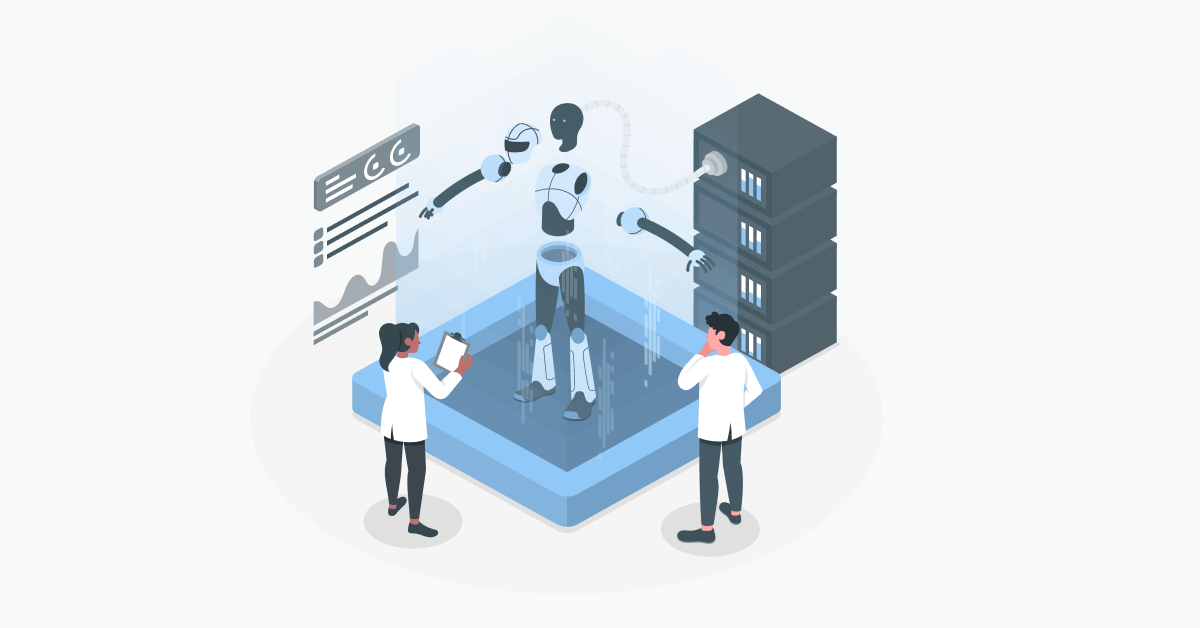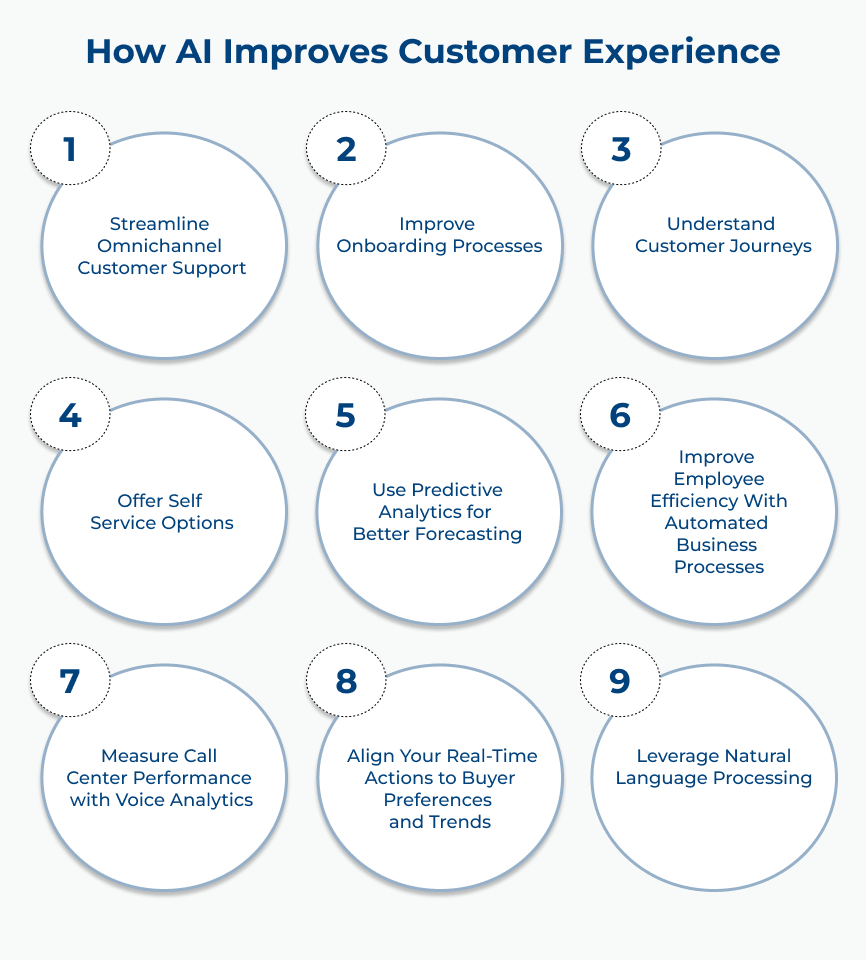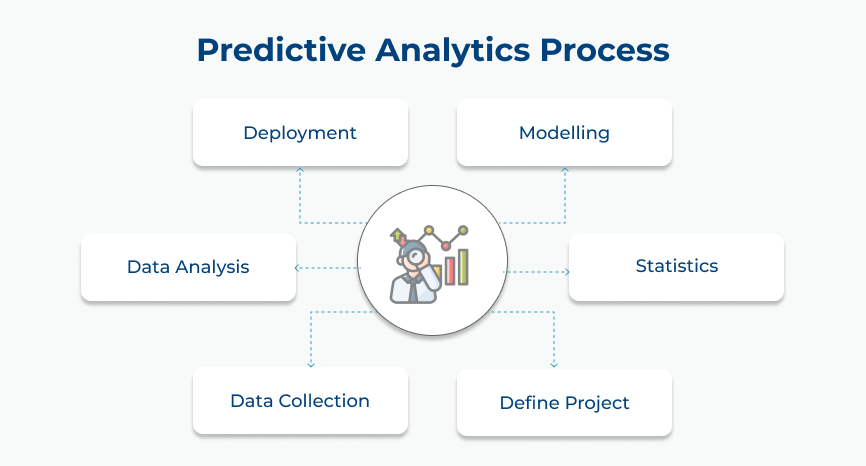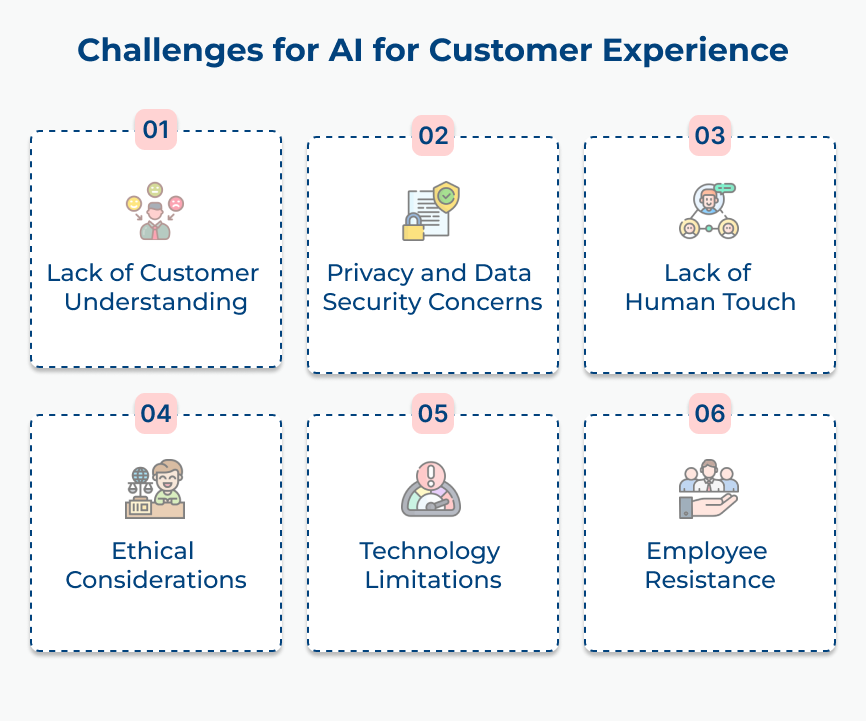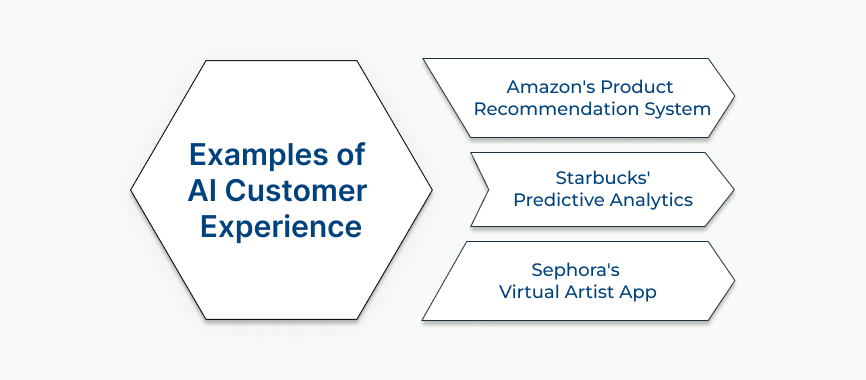1. Streamline Omnichannel Customer Support
AI can analyze vast amounts of customer data and provide real-time insights. Implementing AI-powered chatbots allows businesses to offer immediate and accurate responses to customer queries, ensuring a smoother customer experience. Chatbots can also be integrated across various channels to provide a consistent support experience.
Another important aspect of streamlining omnichannel customer support is proactive customer engagement. AI can identify patterns in customer behavior, enabling businesses to anticipate their needs and offer personalized recommendations or solutions. The proactive AI customer engagement approach not only enhances customer satisfaction but also helps in building brand loyalty.
Key takeaways:
- Implement intelligent chatbots: AI-powered chatbots can provide instant responses and solutions to customer queries, significantly reducing wait times.
- Integrate all channels: Connecting various automated customer support channels allows for seamless and consistent interactions across all platforms.
2. Improve Onboarding Processes
AI is transforming the way businesses enhance their onboarding processes and improve customer experience. Implementing AI in onboarding processes offers a multitude of benefits. The artificial intelligence customer experience get personalized with the customer as AI algorithms can analyze vast amounts of data to tailor onboarding experiences to individual needs and preferences. The level of personalization creates a sense of value and promotes customer loyalty.
AI streamlines the onboarding journey by automating repetitive tasks and providing instant responses to customer queries. It eliminates the frustration of waiting for manual assistance, enhancing efficiency and overall satisfaction. AI-powered chatbots and virtual assistants can guide customers through complex processes, ensuring a smooth onboarding experience.
Key takeaways:
- Personalization: AI can analyze customer data and preferences to create personalized onboarding experiences. It allows businesses to tailor their approach and provide relevant information to new customers.
- Automation: AI can automate various onboarding tasks, such as form filling and document verification. It speeds up the onboarding process and reduces the need for manual intervention.
3. Understand Customer Journeys
One of the key ways AI improves customer experience is by identifying patterns and trends in customer journeys. AI can identify the stages customers go through in their journey and the emotions they experience by analyzing data from various touch points. The information helps businesses tailor their marketing strategies, product offerings and customer support to meet individual needs.
The AI-powered chatbots can provide personalized recommendations and assistance based on individual customer journeys. The chatbots can offer real-time solutions, resolve customer problems, and simplify the buying process. Understanding the customer journeys enables businesses to provide relevant and timely interactions, ultimately leading to increased customer satisfaction.
Key takeaways:
- AI-powered collection and data analytics: AI-powered tools gather and analyze data from various touchpoints to create a holistic view of the customer’s journeys.
- Identify pain points: AI can help businesses pinpoint areas of friction in the customer journey, enabling them to make targeted improvements for a smoother experience.
4. Offer Self Service Options
Self-service options empower customers by giving them control and flexibility. They can find answers to their questions, resolve issues and perform transactions without the need for human assistance. AI enhances self-service options by providing intelligent chatbots, virtual assistants, and voice recognition systems.
Businesses can improve customer experience, increase efficiency and reduce costs by leveraging AI to offer self-service options. Self-service options enable customers to access information 24/7, providing convenience and flexibility. It’s a win-win situation where customers benefit from quick solutions, and businesses benefit from improved customer satisfaction.
Key takeaways:
- Efficiency: AI-powered self-service options offer 24/7 availability, reducing customer wait times and improving overall efficiency by providing quick responses to queries.
- Self-service automation: AI frees up human resources by automating repetitive tasks and routine inquiries, enabling them to focus on complex interactions.
5. Use Predictive Analytics for Better Forecasting
The importance of using predictive analytics for better forecasting cannot be overstated. It enables businesses to accurately anticipate customer demand, optimize inventory management, and minimize wastage. Companies can effectively target their marketing efforts, ensuring the solutions are presented to the right customers at the right time by understanding customer behavior patterns.
Predictive analytics allows businesses to identify potential issues or challenges before they arise. AI algorithms can provide early warnings and insights by analyzing historical data, enabling proactive measures to be taken. It not only improves operational efficiency but also prevents potential customer dissatisfaction or loss.
